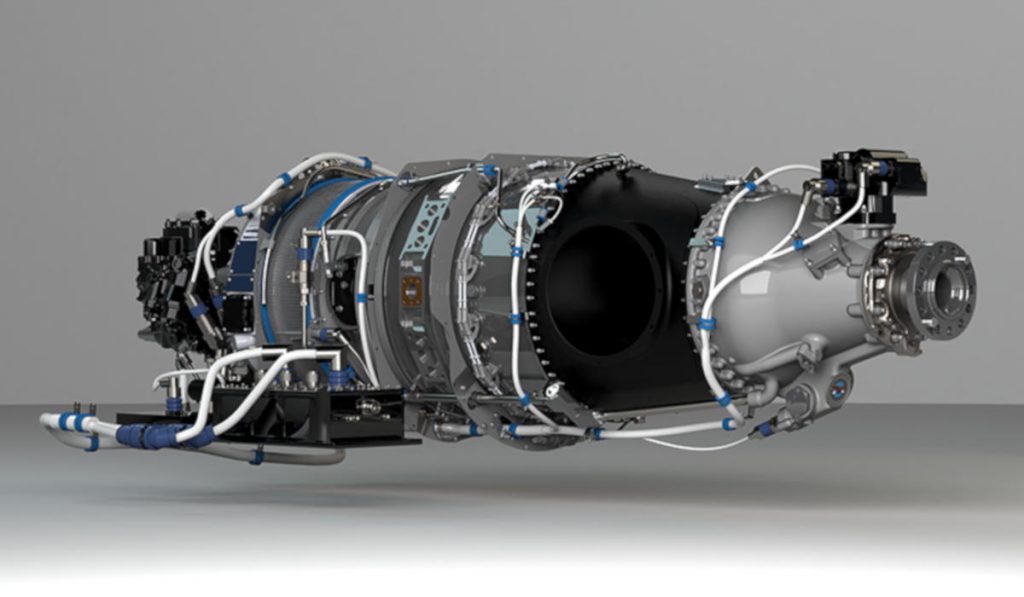
Features
Pratt & Whitney Canada celebrates one billion flying hours and 60 years of PT6 innovation
March 30, 2023 By Helicopters Staff
 The PT6E-67XP turboprop engine from Pratt & Whitney features an Electronic Propeller and Engine Control System including Full Authority Digital Engine Control. (Image: Pratt & Whitney)
The PT6E-67XP turboprop engine from Pratt & Whitney features an Electronic Propeller and Engine Control System including Full Authority Digital Engine Control. (Image: Pratt & Whitney) Pratt & Whitney Canada, a business unit of Pratt & Whitney, in March announced it has reached achieved one billion flying hours since the formation of the company nearly 100 years ago, in 1928.
Pratt & Whitney Canada (P&WC) engines power missions across a diverse portfolio, including business aviation, general aviation, regional aviation, helicopter aviation and auxiliary power units. Over this time, more than 110,000 engines have been produced, with more than 66,000 currently in service powering over 16,000 customers.
“Aviation has the power to change the world. Our engines power aircraft that benefit millions of people every day,” said Maria Della Posta, President, Pratt & Whitney Canada. “Every second, a P&WC-powered aircraft takes off or lands somewhere on the planet, whether they’re driving commerce, reuniting families, or powering humanitarian missions, emergency medical services, or search and rescue missions.
“Achieving one billion flying hours is made possible by the dedicated team at Pratt & Whitney Canada along with our customers, suppliers and the extended P&WC community,” continued Della Posta. “We look forward to celebrating this achievement with them this year.”
The PT6 engine family is also celebrating 60 years of innovation in 2023. It has been embraced by fixed-wing and helicopter airframers around the world. With more than 64,000 PT6 engines produced since its introduction in 1963. It powers over 155 different aviation applications and alone has reached 500 million flying hours.
“Our PT6 engine remains at the forefront of the aviation landscape, bringing breakthrough achievements in performance, control systems and data intelligence,” said Della Posta. “Today’s PT6 is up to four times more powerful, has a 50 per cent better power-to-weight ratio and up to 20 percent better specific fuel consumption compared to the original engine. Each new model is developed and designed with a specific mission, platform and customer in mind, while pursuing a reduced environmental footprint.”
The PT6 engine’s technological evolution is embodied in the latest engine family, the PT6 E-Series, the first such engine with a dual-channel integrated electronic propeller and engine control system in general aviation.
P&WC notes the PT6 is also the only turboprop engine in the world to be approved for single-engine instrument flight rules (SEIFR) in commercial passenger flights in Europe, North America, New Zealand and Australia.